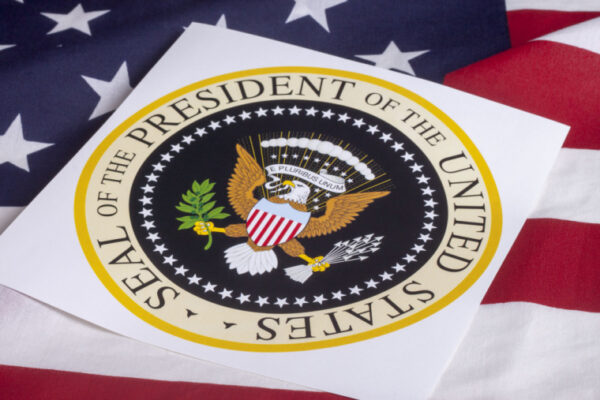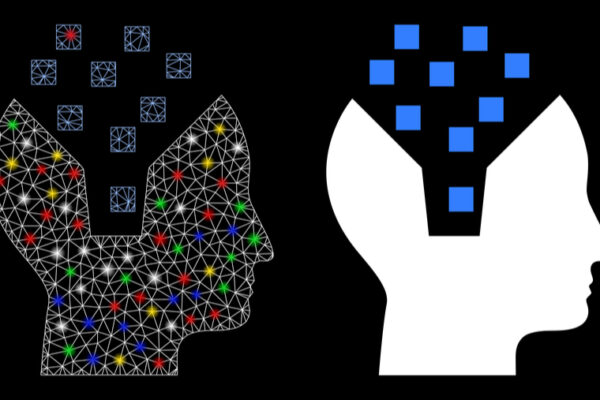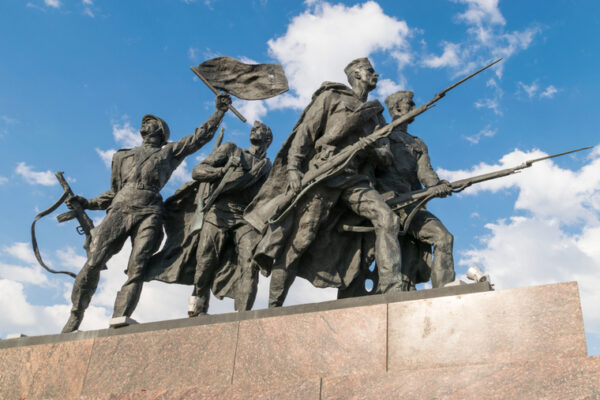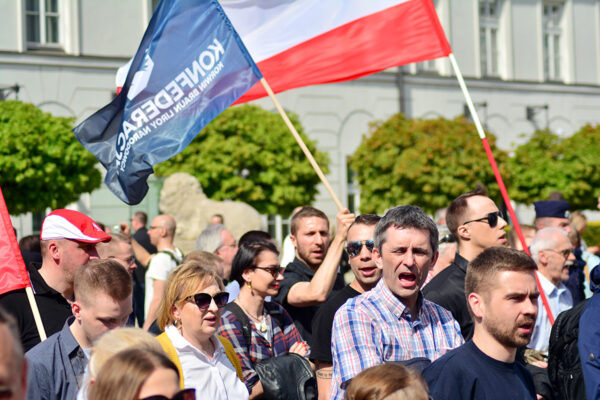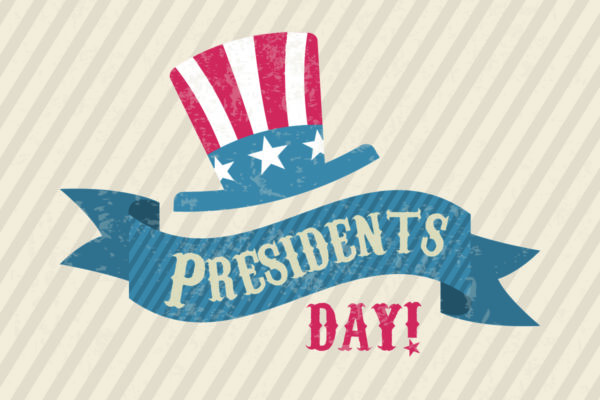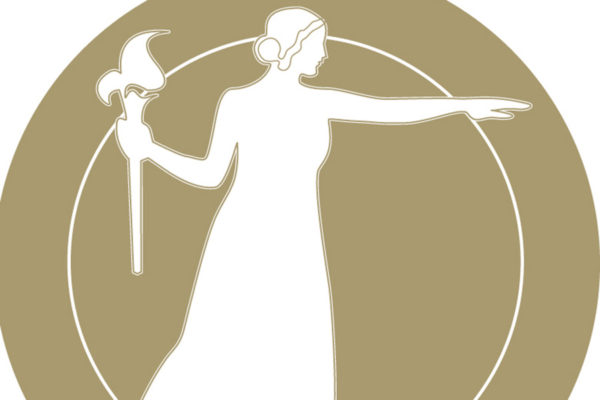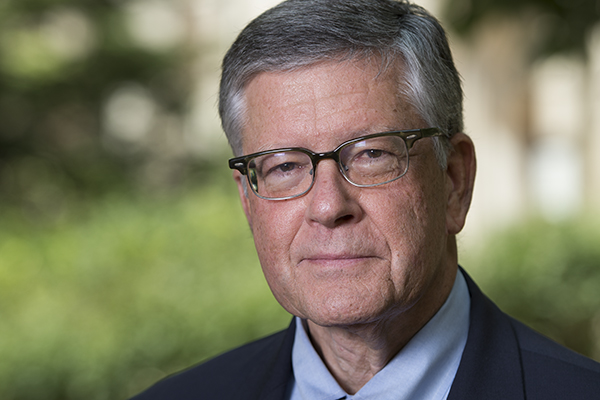An internationally recognized scholar of human memory function, Roediger’s research interests include such topics as how people can suffer memory illusions and false memories (remembering events differently from the way they happened or remembering events that never happened at all), implicit memory (when past events affect ongoing behavior without one’s awareness) and, most recently, applying cognitive psychology to improving learning in educational situations.
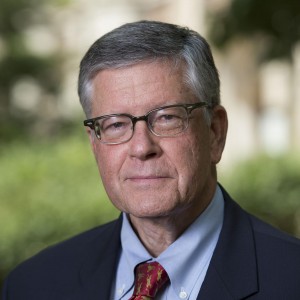
Henry “Roddy” Roediger III
James S. McDonnell Distinguished University Professor, Department of Psychological and Brain Sciences
Contact Information
- Phone: 314-935-4307
- Email: roediger@artsci.wustl.edu
- Website: Website
Media Contact
In the media
You Won’t Remember the Pandemic the Way You Think You Will
Roddy Roediger, the James S. McDonnell Distinguished University Professor
The 1918 Flu Faded in Our Collective Memory: We Might ‘Forget’ the Coronavirus, Too
Roddy Roediger, the James S. McDonnell Distinguished University Professor
Nationality shapes views of a global war’s burdens
Roddy Roediger, the James S. McDonnell Distinguished University Professor
Many students don’t know how to study. Here’s how parents can help.
Roddy Roediger, the James S. McDonnell Distinguished University Professor in Arts & Sciences
Chester A. Arthur Is the Most Forgotten President in U.S. History, According to Science
Roddy Roediger, the James S. McDonnell Distinguished University Professor, Arts & Sciences
The science behind why it’s so hard to fight fake news
Roddy Roediger, the James S. McDonnell Distinguished University Professor, Arts & Sciences
2016 didn’t just give us “fake news.” It likely gave us false memories.
Roddy Roediger, the James S. McDonnell Distinguished University Professor, Arts & Sciences
Maybe You, Too, Could Become A Super Memorizer
Roddy Roediger, the James S. McDonnell Distinguished University Professor, Arts & Sciences
How to train your brain to be like a memory champion’s
Roddy Roediger, the James S. McDonnell Distinguished University Professor, Arts & Sciences
Should we teach obscure presidents like Millard Fillmore?
Roddy Roediger, the James S. McDonnell Distinguished University Professor, Arts & Sciences
Name that president? Americans have weird answers
Roddy Roediger, the James S. McDonnell Distinguished University Professor, Arts & Sciences
Can YOU name the former US President on the $10 bill?
Roddy Roediger, the James S. McDonnell Distinguished University Professor, Arts & Sciences
Stories
Roediger presents ‘Presidential Legacies’ session
Most presidents have 100 years until they fade from Americans’ memory. Henry L. “Roddy” Roediger in Arts & Sciences will discuss his research into this and the broader national collective memory on Sept. 29.
McDonnell Foundation awards Roediger $750,000 for memory research
Henry “Roddy” Roediger and James Wertsch, both in Arts & Sciences, will use a grant from the James S. McDonnell Foundation to encourage the interdisciplinary study of collective memory.
How will we remember this holiday season?
How will this year’s celebrations be remembered? The answer will be “differently than normal” for some individuals, but collective memory for the pandemic itself is likely to fade quickly for most people.
National narcissism rears its head in study of WWII
In a survey of adults from the countries that comprised the World War II alliances known as the Allies and the Axis, respondents overestimate the importance of their country to the war effort. A new Arts & Sciences study shows how.
‘National Memory in a Time of Populism’ conference May 23-25
How collective memories of wars, terrorist attacks and other traumatic events are fueling the surprising re-emergence of nationalist movements will be the focus of a national conference May 23-25 at Washington University in St Louis.
Trump’s legacy still uncertain, suggest experts on nation’s collective memory
While Trump’s legacy may indeed hinge on his ability to overcome partisan differences, ongoing research from Washington University in St. Louis suggests that most U.S. presidents are destined to fade quickly from the nation’s collective memory.
Four faculty elected to National Academy of Sciences
Four university scientists are among the 84 members and 21 foreign associates recently elected to the National Academy of Sciences (NAS) in recognition of their distinguished and continuing achievements in original research.
Misinformation may improve event recall, study finds
Research on eyewitness testimony has shown that false details put forth during an interrogation can lead some people to develop vivid memories of events that never happened. While this “false memory” phenomenon is alive and well, new research suggests that a bit of misinformation also has potential to improve our memories of past events — at least under certain circumstances.
Roediger receives lifetime achievement award
Henry L. “Roddy” Roediger III, an internationally recognized scholar of human memory and the James S. McDonnell Distinguished University Professor in Arts & Sciences, has received the the 2016 Lifetime Achievement Award from the Society for Experimental Psychology and Cognitive Science.
Roediger receives mentor award from Association for Psychological Science
Henry L. “Roddy” Roediger III, an internationally recognized scholar of human memory and the James S. McDonnell Distinguished University Professor in Arts & Sciences, has received the 2016 Mentor Award from the Association for Psychological Science.
Memory test: Which president is this?
Alexander Hamilton, Benjamin Franklin, Hubert Humphrey and some guy named “Thomas Moore” are among the names that many Americans mistakenly identify as belonging to a past president of the United States, finds a news study by memory researchers at Washington University in St. Louis.
Building a memory palace: World’s top memory athletes to compete May 2-3
Recalling long lists of random words, numbers and playing cards will be the challenge this weekend as two dozen of the world’s top memory athletes square off in San Diego for the 2015 Extreme Memory Tournament, an annual competition sponsored by Washington University in St. Louis and Dart NeuroScience.
Most American presidents destined to fade from nation’s memory, study suggests
American presidents spend their time in office trying
to carve out a prominent place in the nation’s collective memory, but
most are destined to be forgotten within 50-to-100 years of their
serving as president, suggests a study on presidential name recall
released Nov. 27 by the journal Science.
Your brain on art: Kandel to explore neuroaesthetics for the Assembly Series
Why do works of art move us so powerfully? Nobel laureate Eric Kandel, MD,will share his insight as the Arthur Holly Compton Lecturer for the Washington University in St. Louis Assembly Series at 5 p.m. Tuesday, Oct. 28, in Graham Chapel.
Fazzari to chair new sociology department in Arts & Sciences
Steven Fazzari, PhD, a leading scholar on the relationship between rising income inequality and macroeconomic trends in the United States, will be chair of the recently re-established Department of Sociology at Washington University in St. Louis, Barbara A. Schaal, PhD, dean of the Faculty of Arts & Sciences, has announced.
Online test estimates ‘Face-Name Memory IQ’
Researchers at Washington University in St. Louis are
inviting the world to take part in an online experiment that will allow
participants to see how their individual scores on a face-name memory
test compare with those of other test takers.
Roediger receives lifetime achievement award
Henry L. “Roddy” Roediger III, PhD, an internationally recognized scholar of human memory and the James S. McDonnell Distinguished University Professor in Arts & Sciences at Washington University in St. Louis, has received the William James Fellow Award from the Association for Psychological Science (APS). Describing Roediger as “one of the world’s best known and most respected researchers in cognitive psychology,” the APS presented him with its highest honor during the annual convention in Chicago May 24-27.
Shock and recall: Negative emotion may enhance memory, study finds
Picture a menacing drill sergeant, a gory slaughterhouse, a devastating scene of a natural disaster. Researchers at Washington University in St. Louis have found that viewing such emotion-laden images immediately after taking a test actually enhances people’s retention of the tested material.
Roediger, Wallace receive Arts & Sciences faculty awards
Henry L. “Roddy” Roediger III, PhD, received the Arts & Sciences Distinguished Leadership Award and William E. Wallace, PhD, received the David Hadas Teaching Award during Arts & Sciences’ annual faculty reception. Gary S. Wihl, PhD, dean of the faculty of Arts & Sciences and the Lewin Distinguished Professor in the Humanities, presented the awards and introduced new faculty at the reception, which also recognized the start of the new academic year.
Roediger to present Phi Beta Kappa Lecture
Henry L. “Roddy” Roediger III, Ph.D., the pre-eminent psychologist and expert on human memory, will give a talk for the Assembly Series’ Phi Beta Kappa Lecture at 4 p.m. Monday, March 30, in Graham Chapel.
McDonnell grant funds collaborative research to improve learning
Using what cognitive psychologists are discovering in the laboratory to improve learning in the classroom is the goal of a $6.47 million collaborative activity grant to Washington University from the James S. McDonnell Foundation.
McDonnell Foundation grant harnesses cognitive science to improve student learning
Using what cognitive psychologists are discovering in the laboratory to improve learning in the classroom is the goal of a $6.47 million collaborative activity grant to Washington University from the James S. McDonnell Foundation.
Roediger wins Warren Medal for contributions to experimental psychology
The Society of Experimental Psychologists has awarded its highest honor to Henry L. “Roddy” Roediger III, Ph.D., an internationally recognized scholar of human memory and the James S. McDonnell Distinguished University Professor in Arts & Sciences. Citing “his creative experimental investigations of false memory and its underlying processes that have led to a new understanding […]
Roediger wins Warren Medal for contributions to experimental psychology
Citing his creative experimental investigations of false memory and underlying processes that have led to a new understanding of human memory, the Society of Experimental Psychologists has awarded its highest honor to WUSTL psychology professor Henry L. “Roddy” Roediger III.
Practicing information retrieval is key to memory retention, study finds
Learning something once, like the fact that “berg” means “mountain” in German, and studying it over and over again may do little to help you remember it in the future. The key to future recall, suggests a new study from Washington University in St. Louis, is how often over time you actively practice retrieving that information from memory.
Social Thought & Analysis finds new home in American Culture Studies
Social Thought & Analysis (STA), an interdisciplinary degree program in Arts & Sciences, has moved to American Culture Studies, according to Henry L. “Roddy” Roediger III, Ph.D., the James S. McDonnell Distinguished University Professor and dean of academic planning in Arts & Sciences.
Researchers find new learning strategy
In the Thoroughman laboratory, volunteers play games on a computer screeen using a robotic arm so that Thoroughman and his colleagues can study how people learn motor skills.Central to being human is the ability to adapt: We learn from our mistakes. Previous theories of learning have assumed that the size of learning naturally scales with the size of the mistake. But now biomedical engineers at Washington University in St. Louis have shown that people can use alternative strategies: Learning does not necessarily scale proportionally with error.
Repeated testing better than repeated studying
“Incorporating more frequent classroom testing into a course may improve students’ learning and promote retention of material long after a course has ended,” Roddy Roediger says.
Repeated test-taking better for retention than repeated studying, research shows
Repeated testing vs. repeated studyingRemember the dreaded pop quiz? Despite their reputation as a cruel tool of teachers intent on striking fear into the hearts of unprepared students, quizzes — given early and often — may be a student’s best friend when it comes to understanding and retaining information for the long haul, suggests new psychology research from Washington University in St. Louis. More…
